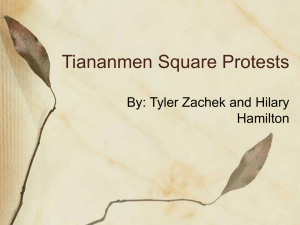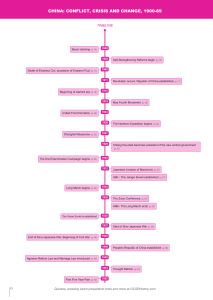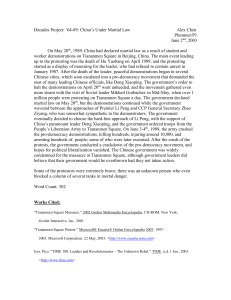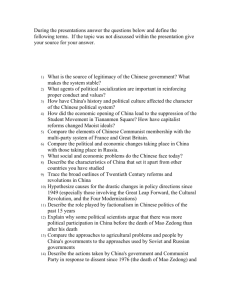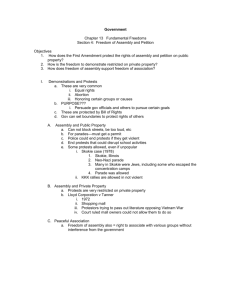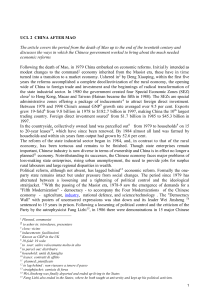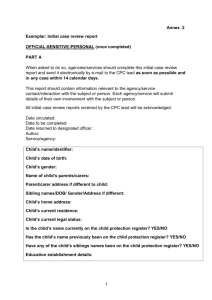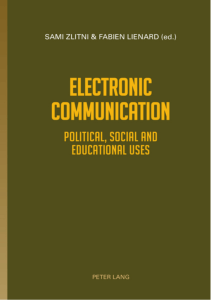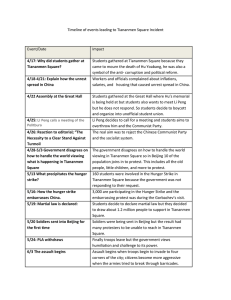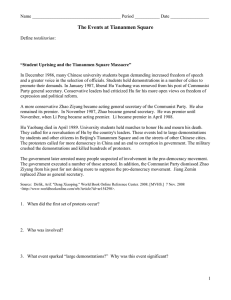Excerpt from treatment for the documentary film Ti
advertisement
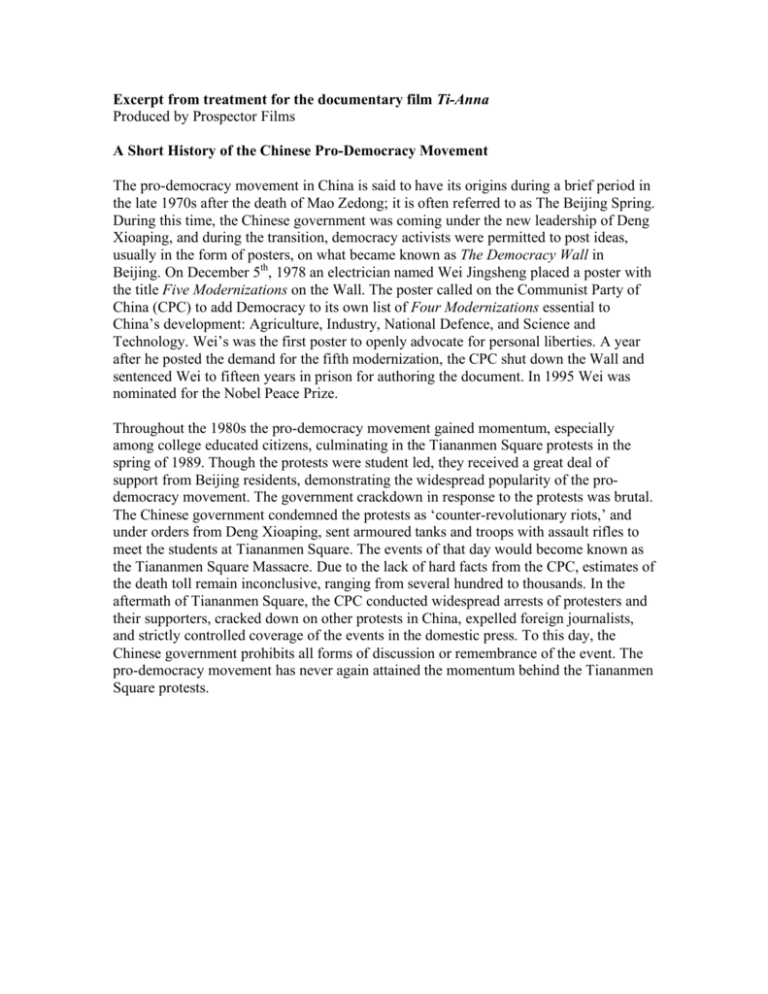
Excerpt from treatment for the documentary film Ti-Anna Produced by Prospector Films A Short History of the Chinese Pro-Democracy Movement The pro-democracy movement in China is said to have its origins during a brief period in the late 1970s after the death of Mao Zedong; it is often referred to as The Beijing Spring. During this time, the Chinese government was coming under the new leadership of Deng Xioaping, and during the transition, democracy activists were permitted to post ideas, usually in the form of posters, on what became known as The Democracy Wall in Beijing. On December 5th, 1978 an electrician named Wei Jingsheng placed a poster with the title Five Modernizations on the Wall. The poster called on the Communist Party of China (CPC) to add Democracy to its own list of Four Modernizations essential to China’s development: Agriculture, Industry, National Defence, and Science and Technology. Wei’s was the first poster to openly advocate for personal liberties. A year after he posted the demand for the fifth modernization, the CPC shut down the Wall and sentenced Wei to fifteen years in prison for authoring the document. In 1995 Wei was nominated for the Nobel Peace Prize. Throughout the 1980s the pro-democracy movement gained momentum, especially among college educated citizens, culminating in the Tiananmen Square protests in the spring of 1989. Though the protests were student led, they received a great deal of support from Beijing residents, demonstrating the widespread popularity of the prodemocracy movement. The government crackdown in response to the protests was brutal. The Chinese government condemned the protests as ‘counter-revolutionary riots,’ and under orders from Deng Xioaping, sent armoured tanks and troops with assault rifles to meet the students at Tiananmen Square. The events of that day would become known as the Tiananmen Square Massacre. Due to the lack of hard facts from the CPC, estimates of the death toll remain inconclusive, ranging from several hundred to thousands. In the aftermath of Tiananmen Square, the CPC conducted widespread arrests of protesters and their supporters, cracked down on other protests in China, expelled foreign journalists, and strictly controlled coverage of the events in the domestic press. To this day, the Chinese government prohibits all forms of discussion or remembrance of the event. The pro-democracy movement has never again attained the momentum behind the Tiananmen Square protests.
